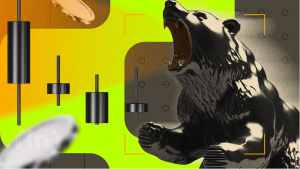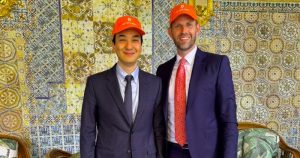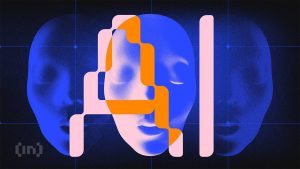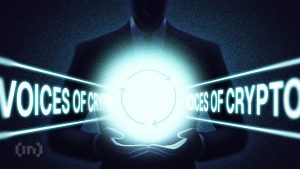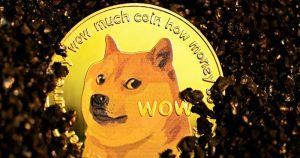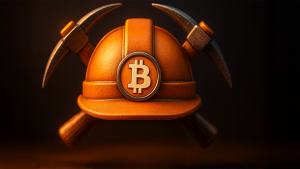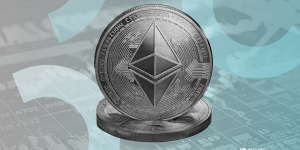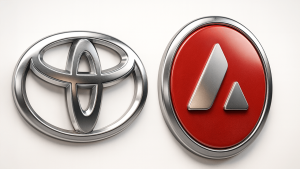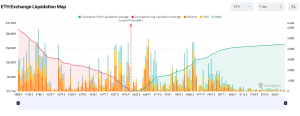What is The Open League on TON and How to Earn Here
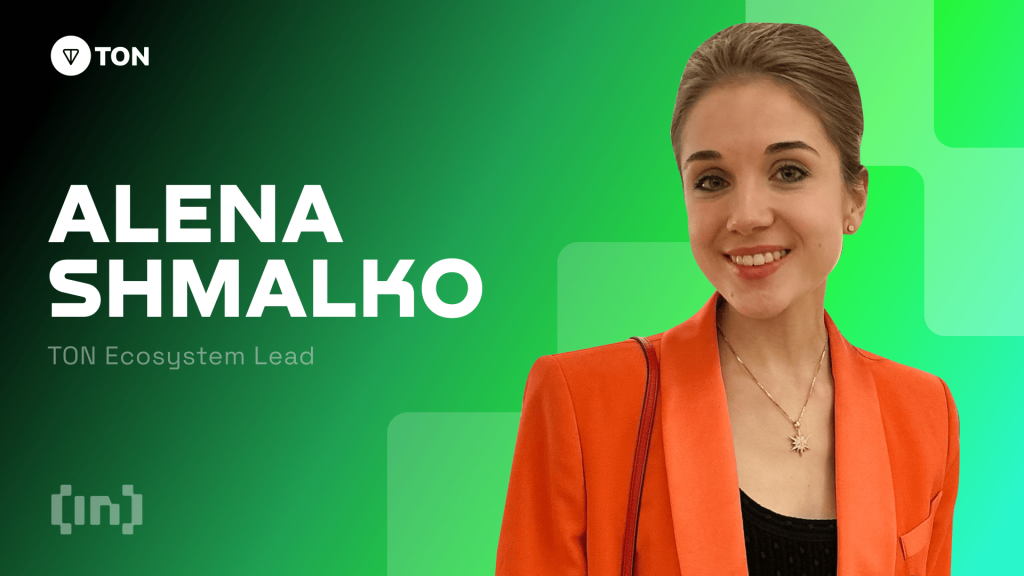
BeInCrypto’s editorial team spoke with TON’s ecosystem support lead, Alena Shmalko, about how the Open League works and what regular users need to know to get the most out of participating in the program
The Open League is a program created by the TON Foundation. Its main goal is to support and incentivize projects and users participating in The Open Network ecosystem.
BeInCrypto’s editorial team investigated how developers plan to develop TON and what future experts predict for the project.
What is The Open League on TON
The Open League program launched on TON in March of this year. It targets both development teams in The Open Network ecosystem and its users.
The League’s structure is simple. All projects are divided into several categories, including:
Decentralized Finance (DeFi) protocols;
Decentralized applications (dApps);
NFT projects.
The Open League is divided into seasons. Each season lasts four weeks. During these seasons, project creators and their users compete for rewards that can reach millions of dollars.
“We also have a separate League chat where representatives from all projects communicate and share feedback,” Alena added.
In previous seasons, TON also separately rewarded tokens for projects that made it into the top 10 at the end of the season. The best teams received rewards for liquidity providers in pools with their tokens on decentralized exchanges (DEX), which totaled more than $1 million each season.
Read the exclusive interview with Alena Shmalko to learn how the TON Foundation plans to attract 500 million users to Web3.
Sixth Season of The Open League and New Airdrop Plan
The sixth season of the League is currently underway. The TON blockchain team has allocated $1.2 million in Toncoin — the network’s native token — for it. According to Alena Shmalko, this season differs from the previous five.
“We’re conducting many experiments, trying to arrive at some ideal formula […] Initially, it looked more like a competition between projects, where the main beneficiaries were the projects themselves. They received direct prizes from us. […] From the sixth season, we decided to direct the entire main prize pool specifically to users,” she shared.
The entire prize pool of $1.2 million will be directed to so-called community airdrops. This means rewards will go to users who increase activity in the TON ecosystem.
The Open Network team has divided the airdrops into two categories:
Normie airdrop. Funds allocated to this category are intended for newcomers. However, a basic understanding of cryptocurrencies and blockchain is required.
Degen airdrop. Aimed at more experienced users who are offered more complex actions. Participation is possible through providing liquidity in DeFi protocols or making transactions with certain volumes.
Which Projects Can Join The Open League
According to Alena, the main requirement for projects is having on-chain mechanics on TON. A Web2 application, even if it plans to launch a token, cannot join the League.
Two other general criteria are minimum user activity and good UX/UI. Alena Shmalko noted that the product must be high-quality, understandable, and useful for users.
However, overall, criteria may vary for each League. For example, in addition to all of the above, the App League requires integration of SDK from the Telegram Apps Center team to track off-chain activity.
The DeFi League accepts projects that have already launched on the mainnet.
How Users Can Participate in The Open League
Users have access to two types of airdrops: Normie or Degen. According to Alena, anyone can participate in both categories.
Normie Airdrop
To participate in the Normie airdrop from The Open League with a prize pool of $1 million, users need to go to the program’s website, connect their wallet, and request a Normie badge by following simple step-by-step instructions.
A badge is a Soulbound token (SBT), a non-transferable asset that represents a user’s identity in the blockchain world.
After receiving the Normie badge, users will see a list of available applications. To be eligible for the airdrop, users must make a transaction in at least two products from the list. Then, users are invited to get acquainted with DeFi protocols, NFT collections, and other assets on the TON network.
“A specific point system exists, but it isn’t disclosed. Later, we will attribute points depending on how actively the user participated in the ecosystem during the airdrop,” clarified the TON ecosystem head.
Alena shared with BeInCrypto’s editorial team an insider tip on how to get the most out of participating in the League:
“The secret is that users should show maximum activity in DeFi protocols STON, DeDust, Evaa, Storm Trade, bemo, Tonstakers. Providing liquidity or trading in these applications is deservedly rewarded. There are also several assets worth holding in your wallet to increase the number of points for the airdrop. For example, holding Toncoin, having a TON DNS domain, Telegram username, or an anonymous number that can be bought on the Fragment platform. All of this together gives you additional points,” she explained.
It turns out that the more a user interacts with the TON ecosystem, especially with its DeFi part, the higher their chances of receiving a significant airdrop amount. According to Alena, the main goal of The Open League is to “jointly bring people to different corners” of The Open Network.
Degen Airdrop
To participate in the distribution for more advanced blockchain users, you need to mint a Degen badge on the same program page. This airdrop differs in that participants must perform slightly more complex actions.
In particular, users participating in the Degen airdrop need to provide liquidity in one of the available DeFi protocols. The minimum amount is $200. The more funds a participant provides, the higher their reward will be during the distribution.
Then, users need to make transactions to increase the volume of DeFi projects in the League. They need to trade at least $1,000 worth. According to Alena, you can focus only on liquidity or only on volumes — each action separately will allow you to receive a share of the total prize pool of $200,000.
The Advantage of The Open League
The head of the TON ecosystem noted that the Open League program’s main advantage is that it significantly simplifies the process of diving into Web3 for users far from blockchain.
“I follow what’s happening in other ecosystems, and there the focus of drops is made on complex DeFi protocols. We’re more oriented toward regular users and consumer applications. TON, thanks to its partnership with Telegram, aims to attract users from Web2 to Web3,” she explained.
With Telegram’s help, TON promotes simple and useful applications. For example, in the ecosystem, you can find utilities that allow you to pay for purchases on the Steam gaming platform, buy Amazon gift cards, or subscriptions to services like Netflix.
“A user can start with a simple action, like buying an eSIM or game, and then we literally take them by the hand and lead them further through the ecosystem: introducing them to NFT, DeFi, and other tools. This is a more native approach,” emphasized Alena Shmalko.
The Benefit for TON
The head of the TON ecosystem noted that the blockchain strives for sustainability through initiatives like The Open League. Alena Shmalko noted that users should have organic motivation to stay and earn income.
In the long term, TON aims to achieve the following indicators:
TVL of $1 billion;
500 million active wallets.
According to DefiLlama, TON’s TVL is $382 million at the time of writing. At its peak, the indicator almost reached $800 million. Meanwhile, a record was also recently achieved in the number of daily active wallets—2 million.
“For us, this is a growth tool for key metrics such as TVL and number of wallets. We create an environment where projects can thrive from different angles and attract an audience, having all the necessary resources for visibility in the ecosystem,” concluded the interviewee.
Disclaimer
In compliance with the Trust Project guidelines, this opinion article presents the author’s perspective and may not necessarily reflect the views of BeInCrypto. BeInCrypto remains committed to transparent reporting and upholding the highest standards of journalism. Readers are advised to verify information independently and consult with a professional before making decisions based on this content. Please note that our Terms and Conditions, Privacy Policy, and Disclaimers have been updated.





